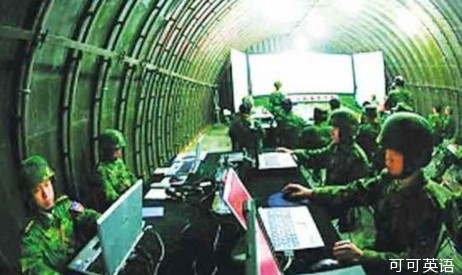
Beijing is engaged in systematic cyber spying on the US military and private businesses to acquire technology to boost its military modernisation and strengthen its capacity in any regional crisis, according to the Pentagon.
五角大楼称,中国正对美国军方和私营企业展开系统化的网络间谍活动,以求获取有助于中国军事现代化的技术、加强自身在地区性危机中的实力。
In its annual report to Congress on the People’s Liberation Army, the Pentagon gives new emphasis to the threat of cyber espionage from China, an issue that has been the subject of top-level complaints to Beijing by Washington.
在其提交给美国国会的、关于中国人民解放军的年度报告中,五角大楼对来自中国的网络间谍活动威胁给予了新的强调。这个问题已成为美方向中方发出的高层抱怨的主题。
The report says China “is using its computer network exploitation capability to support intelligence collection against the US diplomatic, economic and defence industrial base sectors that support US national (military) programmes.”
报告称,中国“正动用其电脑网络利用能力来支持情报收集活动,活动的目标是那些支撑美国国家(军事)计划的美国外交、经济和国防工业基础部门。”
Although such allegations have long been directed at China, the Pentagon’s comments are perhaps the strongest yet about an issue that is raising the ire of many of Beijing’s critics in Congress. Washington has also used cyber warfare tactics, most notably in its battle to prevent Iran from obtaining nuclear weapons capability, but US officials have said the country does not steal commercial or technological secrets.
虽然中国一直受到这类指控,但五角大楼的最新报告在措辞上可能是迄今为止最强烈的。这个问题正在美国国会中激起许多对中国持批评态度的人士的怒火。美国自身也使用网络战战术,最突出的就是它为阻止伊朗获得核武能力而发起的网络战斗,但美国官员表示,美国并不窃取商业或技术秘密。
In its report, the Pentagon paints a picture of a highly organised adversary which is using multiple methods to acquire technology, ranging from state businesses to students to old-fashioned espionage.
五角大楼在报告中描绘了一个具有高度组织性的对手。从国企、留学生到传统的间谍手段,这个对手正利用多种方法来获取技术。
“China continues to leverage foreign investments, commercial joint ventures, academic exchanges, the experience of repatriated Chinese students and researchers, and state-sponsored industrial and technical espionage to increase the level of technologies and expertise available to support military research, development and acquisition,” the report says.
“中国继续利用海外投资、商业合资项目、学术交流、回国的中国留学生和研究人员的经验、以及政府支持的工业和技术间谍活动,来提高技术水平、提升可支持军事研究、开发及获取的技能,”报告表示。
“In 2012, numerous computer systems around the world, including those owned by the US government, continued to be targeted for intrusions, some of which appear to be attributable directly to the Chinese government and military.”
“2012年,世界各地有无数电脑系统,包括美国政府拥有的电脑系统,继续成为侵入目标,其中一些侵入行为似乎可直接归咎于中国政府和中国军方。”
The PLA is under the direct leadership of the Communist party, and its head, Xi Jinping, appointed last year. Mr Xi carries the less important title of state president as well. The party also appoints all the senior executives of the big state-owned enterprises, arousing suspicion from China’s rivals overseas that these companies are both commercial entities and vehicles for the broader interests of the state.
解放军受中国共产党及去年上任的中共中央总书记习近平的直接领导。习近平另外还担任重要性不那么高的国家主席职务。中共还任命大型国有企业的所有高管,这种做法使得中国在海外的对手怀疑这些企业既是商业实体、也是国家整体利益的工具。
The Pentagon report reiterates that the primary aim of PLA modernisation has been to ensure that Beijing prevails in any possible clash with Taiwan, which it regards as a renegade province and part of China.
五角大楼的报告重申,解放军现代化的首要目标是确保中国大陆在其与台湾可能发生的冲突中占据上风。北京方面把台湾视为一个叛离省份及中国的一部分。
But while preparing for a potential conflict in the Strait of Taiwan appears to remain China’s principal focus, the military has been expanding its contacts with the armed forces of other countries.
但是,尽管为台海潜在冲突进行准备似乎仍是中国的主要关注点,但中国军方近来也一直在扩大对抗范围,与其他国家的军队发生对峙。
“Its military modernisation has also become increasingly focused on investments in capabilities to conduct a wider range of missions beyond its immediate territorial concerns,” the report says.
“中国的军事现代化还日益聚焦于投资发展各种能力,以执行超出其紧迫领土关切范围的更广泛任务,”报告表示。
The PLA’s expanded role has included counter-piracy and humanitarian assistance missions.
解放军扩大后的角色迄今已包括打击海盗和执行人道主义援助任务。


